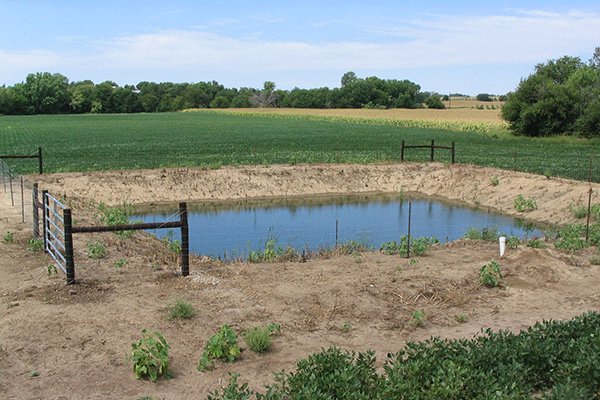Additives such as yeast are marketed as a quick and easy way to improve bacterial degradation of the wastewater within a system such as a lagoon. However, the reality is that none of the yeast additives have been proven to be effective in improving bacterial action within your lagoon. Additionally, yeast additives have shown to have negative impacts on groundwater quality as well as potential further negative impact on surrounding environmental resources such as vegetation.
If you think the waste treatment is insufficient, consider taking the following two steps:
- Check your lagoon for signs of duckweed that could be covering the surface of your lagoon. If duckweed is present and covers more than half of your lagoon, and if so take steps to chemically treat and/or mechanically remove the duckweed
- Have a certified wastewater professional check the sludge level in the lagoon.
In addition, for the long-term there are additional operation and maintenance routines for the lagoon and within your home that can help keep the bacteria active and healthy. Examples of those practices include:
- Regularly check that grass covering the lagoon berm remains between 3 to 6 inches to prevent shading and allow airflow through the lagoon.
- Don’t plant trees, shrubs or other plants near the lagoon to maintain good airflow and sun exposure in the lagoon.
- Use bleach or other disinfectants sparingly in your home to limit potential to harm good bacteria within the lagoon.
- Do not pour grease, cooking fats, chemical drain openers, paints, solvents, fuels, oil, pesticides or other chemicals down the drain in your home.
For more information on lagoon and wastewater system operation and maintenance go to water.unl.edu or Lancaster.unl.edu.

